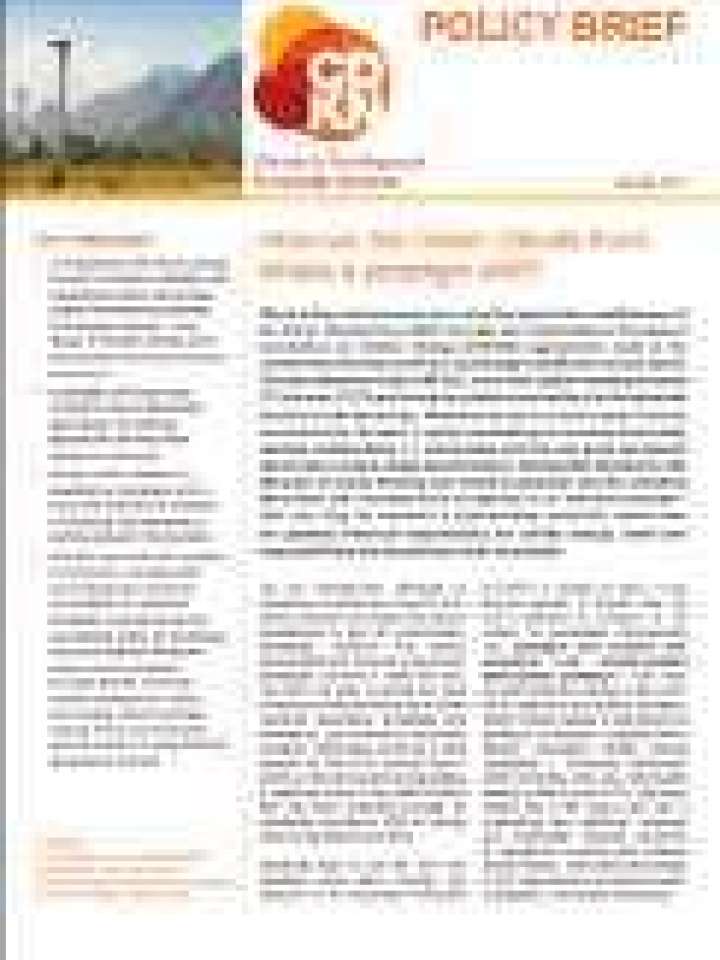How can the Green Climate Fund initiate a paradigm shift?
This policy brief explores the measures that will be needed for the Green Climate Fund (GCF) to fulfill its objective to achieve a paradigm shift towards low-carbon and climate-resilient development. World leaders and governments paved the way for the establishment of the Green Climate Fund (GCF) through the United Nations Framework Convention on Climate Change agreements made at the Conference of Parties in Copenhagen (2009) and Cancún (2010). It addresses the different aspects of a paradigm shift, such as transformational change and its implications, and presents some GCF modalities to initiate shifts, from the results to the performance indicators, emphasizing the importance of country ownership.
The brief argues that: (i) the goal of initiating a paradigm shift has implications for the way that funded activities, themselves, are designed – and also for the provision of financial resources to the GCF; (ii) a paradigm shift might imply moving to more programmatic approaches, for example approaches covering whole sectors or economies; (iii) strong country ownership is essential for a paradigm shift to occur and important for ambition to ensure that new ways of working endure in the long term; (iv) the GCF can create the conditions for achieving a paradigm shift by providing clear incentives and guidance for ambitious proposals by governments and sub-national actors, by developing access modalities that ensure strong country ownership, by supporting the necessary capacity development, and by encouraging robust knowledge sharing, and this must be matched with the provision of large financial resources to the fund.
Explore further
